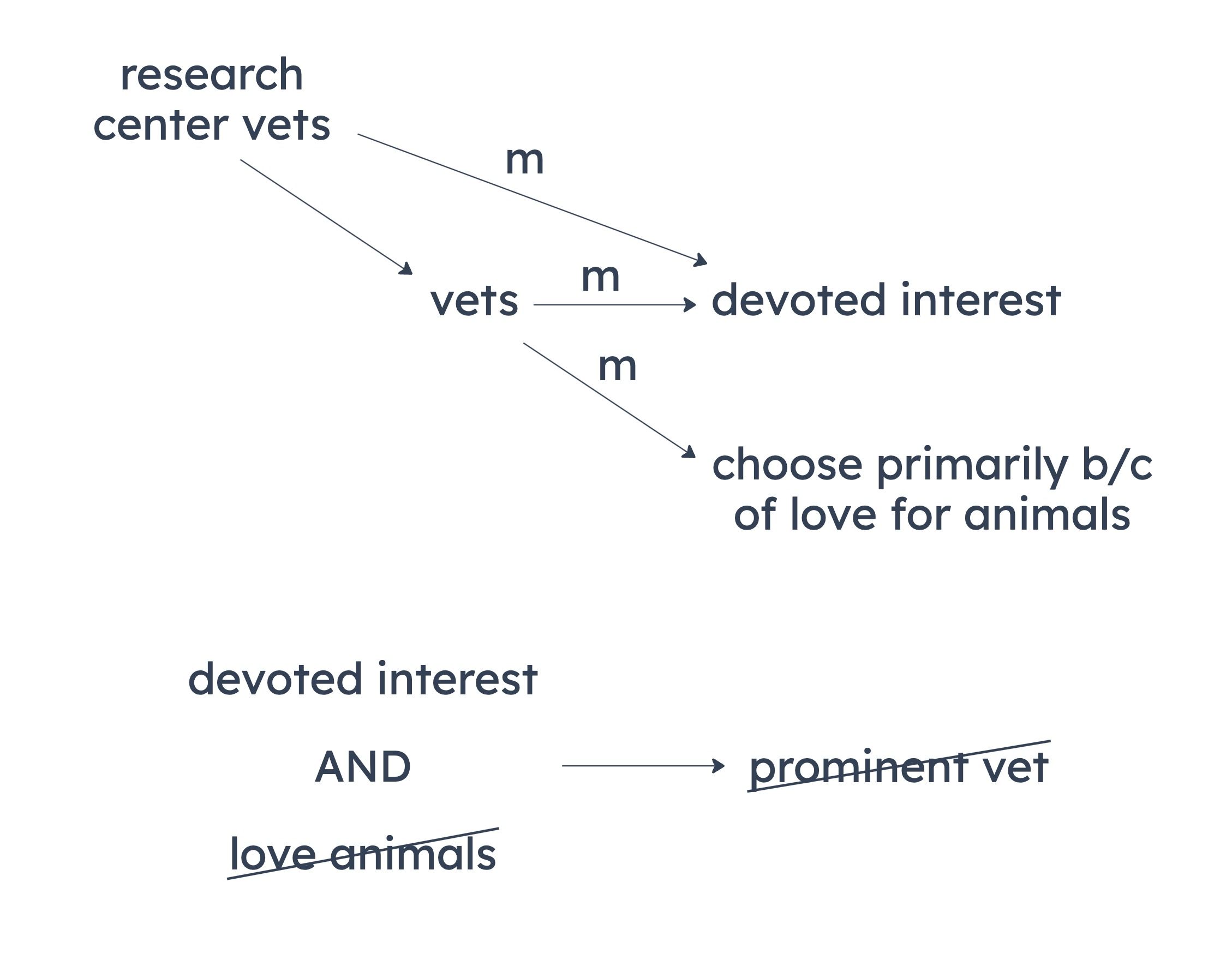Sign up to star your favorites LSAT 49 - Section 4 - Question 17
April 21, 2012Sign up to star your favorites LSAT 122 - Section 4 - Question 01
April 21, 2012
A
presumes, without providing justification, that the government is at least partly responsible for the improvement in the employment situation
B
relies on data from a period that is too short to justify an inference about a general trend
C
fails to take into account the possibility that many unemployed workers who still desire jobs may have stopped looking for jobs
D
fails to take into account that the sorts of governmental efforts that reduce unemployment may not be effective in creating more high-paying jobs
E
ignores other economic indicators, which may not have improved during the past two years
Sign up to star your favorites LSAT 122 - Section 4 - Question 02
April 21, 2012
A
whether the garlic tablets are readily available to the public
B
what the diets of the two groups were during the period
C
what effect taking the garlic tablets each day for a period of less than four months had on the levels of cholesterol and triglycerides
D
whether large amounts of garlic are well tolerated by all patients
E
whether the manufacturer of the garlic tablets cites the study in its advertising
Sign up to star your favorites LSAT 122 - Section 4 - Question 03
April 21, 2012Educator: If there is a crisis in education today, it is one of maintaining quality. People love to reduce serious learning to degrees and certificates. But one also can obtain these credentials by plodding through courses without ever learning much of value. When that happens, the credentials one receives are almost meaningless.
Summary
Crisis in education today→ crisis of maintaining quality
People love to reduce serious learning to degrees and certificates
It is possible to obtain degrees and certificates without learning much of value.
Earned certificates or degrees by plodding through courses without learning→ those credentials or degrees are almost meaningless.
Notable Valid Inferences
It is possible to obtain degrees and certificates without learning much of value.
A
Increasingly, institutions are granting meaningless degrees and certificates.
This could be false. We are given criteria to describe meaningless credentials; we don’t know how many meaningless credentials are granted or if the rate of granting meaningless credentials is increasing.
B
It has become easier for students to complete their coursework without learning anything of importance.
This could be false. It is possible that plodding through courses is difficult––the stimulus gives no information on how easy something is.
C
Educational institutions should cease to grant degrees and certificates.
This could be false. The stimulus does not contain any recommendation for the actions that educational institutions should take.
D
Degrees and certificates do not guarantee that a person has acquired much worthwhile knowledge.
This must be true. From the stimulus, we know that it is possible to obtain degrees and certificates without learning much of value.
E
A person benefits from an education only to the extent that he or she invests effort in it.
This could be false. The stimulus does not specify under what conditions one benefits from an education.
Sign up to star your favorites LSAT 122 - Section 4 - Question 04
April 21, 2012
A
The press is unusually inaccurate when it reports on people’s private lives.
B
Reporting on politicians’ private lives distracts voters from more important issues in a campaign.
C
Much writing on politicians’ private lives consists of rumors circulated by opposing candidates.
D
In recent elections, the best local politicians have refused to run for national office because of the intrusiveness of press coverage.
E
Politicians’ personality flaws often ultimately affect their performance on the job.
Sign up to star your favorites LSAT 122 - Section 4 - Question 05
April 21, 2012
Some people with a devoted interest in biology chose their profession primarily because of love for animals.
A
Some veterinarians have a greater love for biological science than for individual animals.
B
Most veterinarians love animals and have an interest in biological science.
C
Prominent veterinarians at some veterinary research centers are intensely devoted to the biological sciences but do not feel any pronounced affection for animals.

D
Few veterinarians at university research centers chose their profession primarily because they love animals.
E
Most veterinarians who are not prominent regard an understanding of the biological sciences as the most important quality for success in their profession.
Sign up to star your favorites LSAT 122 - Section 4 - Question 06
April 21, 2012
A
fails to show that the mythical creature mentioned represents the horse in people’s minds
B
fails to consider that people might have good reason to fear horses
C
confuses the expression of unconscious thoughts with the suppression of them
D
fails to demonstrate that the myth was not borrowed from one of the cultures by the others
E
fails to explain why people use myth for the expression of unconscious thoughts
Sign up to star your favorites LSAT 122 - Section 4 - Question 07
April 21, 2012
A
The chemicals used in treated lumber are apparently not dangerous to the consumer.
B
Treated lumber is as dangerous when used outdoors as it is when used indoors.
C
The effects on humans from the chemicals in treated lumber should be studied.
D
Parents should not allow children to put their mouths on playground equipment.
E
Treated lumber is more dangerous than was once believed.
Sign up to star your favorites LSAT 122 - Section 4 - Question 08
April 21, 2012